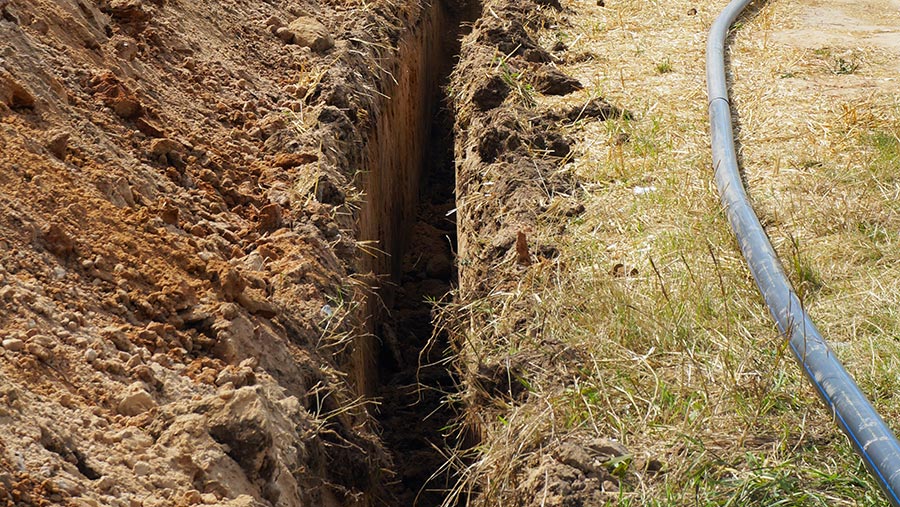Opinion: Water and energy works wrecking crops and headlands
 © Shavel Aksana/Adobe Stock
© Shavel Aksana/Adobe Stock We were notified a while ago that Anglian Water was intending to supply water from its Norwich reservoir to our local town of Wymondham and that it may route the trench through our farm.
What we did not anticipate was that this would involve five fields and that disruption and crop damage would last, intermittently, from spring to Christmas.
To add insult to injury, so to speak, electricity cables to take power generated by North Sea wind farms to a substation a few miles away are also scheduled to cross our land and affect four more fields up to 200m wide.
See also: Compulsory purchase – what are my rights as a farm tenant?
Trenching for them hasn’t started, but we await with trepidation.
But the water trenchers are with us already. They rented space from us to store their vehicles, but still park some of them on a wheat crop alongside the agreed area.
About the author
 David Richardson
David Richardson
Columnist, Farmers Weekly
David Richardson farms about 400ha of arable land near Norwich, Norfolk, in partnership with his wife Lorna and his son Rob.
Read more articles by David Richardson
Exploratory trenches
Prior to the real thing, they are digging exploratory trenches – some of them 50m long – to check for anything of archaeological interest.
They have to do this to satisfy historians, but up to now the only evidence we have seen of what they have found is a button and an animal’s tooth.
The support team, who spend their time watching the digger, consists of up to four men, each of whom has his own van and deems it necessary to drive over the wheat and rapeseed crops through which they are trenching, widening the area of crop damage.
At other times they drive, or park, on our flower-rich headlands, which aren’t even supposed to be walked on, particularly at this time of year when ground-nesting birds are getting ready to lay eggs.
The contractors seem oblivious to what these headlands are for despite being told their purpose.
Nor do they have any empathy for the distress we feel at seeing crops and environmental areas we have so carefully established being destroyed.
To them, the trenches are just a line on a map. If they cut across a drain they seem to have little interest in whether the land will flood after they have gone.
More damage
Worse still, they plan to return in November to dig the real trench, not necessarily in the same places they have previously dug, by which time the land may be wet and the damage more severe.
We’re not the only ones affected, of course. Everyone along the route of the trench will be similarly frustrated.
And we will be compensated for “crop loss and disturbance”, although on the tenanted land some of this goes to the landlord, who qualifies for “easement”.
Needless to say, we are taking photographs daily of what is happening on our patch and our agent is working on our behalf to ensure fair compensation.
These works are compulsory and can’t be stopped. And I do appreciate the need for water and electricity to reach consumers.
But would it not be possible to do some of the work at times when it doesn’t destroy crops?
And with better communication, couldn’t the workmen be made to understand the environmental and commercial sensitivities of the land they are disturbing?
